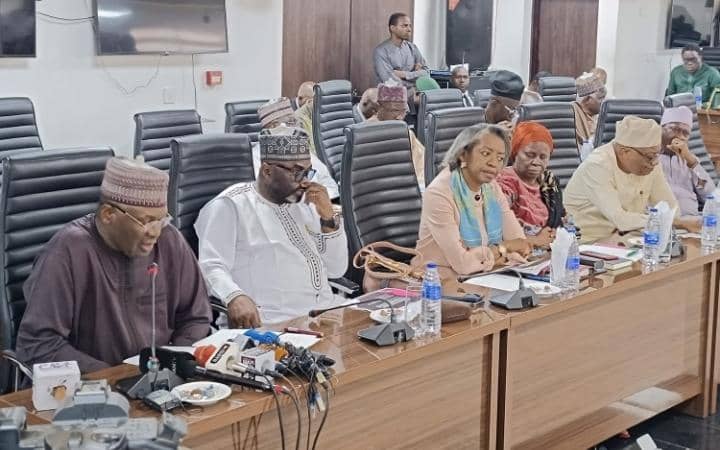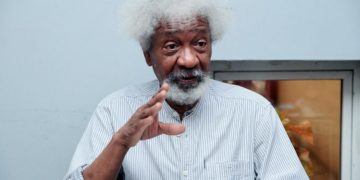The Independent National Electoral Commission (INEC) on Monday, received a high-level delegation from the ECOWAS Network of Electoral Commissions (ECONEC) for a crucial post-election review mission.
The visit aimed at assessing Nigeria’s implementation of recommendations following the 2023 general elections.
Led by the Chairperson of Liberia’s National Elections Commission, Mrs. Davidetta Browne-Lansanah, and Deputy Chairman of Ghana’s Electoral Commission, Dr. Bossman Asare, the delegation is in Nigeria to evaluate the extent to which reforms proposed by the ECOWAS Election Observation Mission (EOM) have been adopted.
INEC Chairman, Professor Mahmood Yakubu, who received the delegation at the commission’s headquarters in Abuja described the mission as “routine practice but very critical to electoral democracy in our region.”
In a statement posted on the Commission’s Facebook page, Yakubu recalled that Nigeria recently participated in a similar review process in The Gambia, adding that such exercises promote mutual accountability and progress across West Africa.
According to Yakubu, the ECOWAS EOM made a total of 37 recommendations after observing Nigeria’s 2023 general elections but said only 13 of those were directed at INEC.
“The Commission is glad that ECOWAS, in its wisdom, recognises that election is a multi-stakeholder responsibility,” Yakubu said.
He noted that the remaining 24 recommendations were aimed at other key stakeholders including the National Assembly (requiring legislative amendments), the Nigeria Police Force (NPF), National Broadcasting Commission (NBC) and the National Information Technology Development Agency (NITDA).
Other stakeholders include civil society organisations, the Nigeria Union of Journalists (NUJ) and political parties through the Inter-Party Advisory Council (IPAC).
The delegation is also expected to meet with the National Identity Management Commission (NIMC), one of the institutions mentioned in the reform matrix.
Providing an update on the implementation status of INEC-specific reforms, Yakubu said the Commission had reviewed and acted on all the recommendations requiring administrative action.
However, those demanding legislative change, he said, were still pending due to ongoing legal reviews by the National Assembly.
He also disclosed that INEC has developed 142 internal recommendations for electoral reform, many of which aligned with the ECOWAS suggestions.
According to him, these proposals were drawn from internal reviews and external consultations, and have been published on the Commission’s website.
Yakubu thanked international partners such as the Electoral Institute for Sustainable Democracy in Africa (EISA), the International Institute for Democracy and Electoral Assistance (IDEA), and the German development agency GIZ for supporting the review mission.
He also commended the ECONEC Secretariat for its professionalism and reiterated Nigeria’s commitment to regional democratic improvement.
“We look forward to a robust interaction in the coming days as we share experiences and strategies for strengthening electoral processes across West Africa,” the INEC boss concluded.











